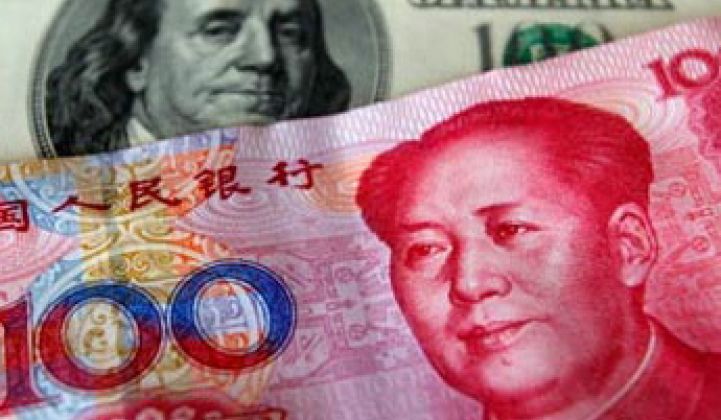The photovoltaic trade issue initiated by the SolarWorld-led Coalition of American Solar Manufacturers (CASM) claiming that Chinese manufacturers are dumping PV panels on U.S. shores and that China is providing unfair subsidies to its own solar industry is, to say the least, a contentious issue.
Just take a look at the arguments posed on our comment boards -- and the verbal lashings inflicted upon your humble narrator. It makes sense, as the issue is fraught with matters of money and nationalism.
- We covered the initial CASM announcement here and here.
- We published a primer on the mechanics of the way these cases are handled by the ITA here.
- Statements from a variety of Chinese PV panel manufacturers were compiled here.
- Here is President Obama voicing his administration's leanings on this matter.
- We published a statement by CPIA, the Chinese Photovoltaic Industry Association, in which they make a claim that American firms are guilty of dumping polysilicon on China's shores. CPIA is alleged to be led by LDK and GCL Poly. Another claim is being made about unfair American subsidies, as well.
- CASE tried to encourage a spirit of de-escalation amongst CASM and CPIA here.
Ben Santarris, a spokesman on this matter for SolarWorld and CASM, offers these reactions to CPIA and CASE:
On CPIA: Any Chinese industry has the right to seek redress for alleged trade violations, just as we do, if it believes one of our industries has used illegal export-intensive subsidies to harm its own counterpart industry. The timing of this threat, however, would seem to be retaliatory. If so, and the government of China advances the case with that motive, it would signal that China’s economy has not matured as a world trading partner to the point where it can take trade challenges seriously and responsibly defend against them.
Regardless, we can only hope that the Chinese government would provide the due process, public transparency and investigative rigor that both sides will receive in our case. If the Chinese importers are, as they say, seeing their worst fears becoming reality in the form of this threat of retaliatory action, then we can only say they should not have staked their business plans on what much of the rest of the industry clearly recognized as illegal trade aggression.
On CASE: Our coalition is challenging systematic, massive and ever-escalating forms of trade and subsidies that are quite simply illegal, unacceptable and anti-competitive. From the timing, it would appear that instead of addressing our legitimate concerns, Chinese manufacturers now are considering mounting a retaliatory trade case. From today’s statement from U.S.-based Chinese importers, it also would appear that instead of addressing our concerns, they would suggest that we are somehow to blame. We are confident that neither federal investigators nor the American public will be fooled by either form of irresponsible action.
Moreover, any U.S. status as a solar net exporter to China in the past is sure to be proved short-lived if China remains unchallenged, as history clearly shows. Even as China moves to clinch its solar production monopoly in the West, it is positioning state-owned industry operations to displace its need for U.S. imports of equipment and polysilicon.
Santarris also reacts to an article in Business Week. The piece quotes a BNEF analyst as saying that a move by LDK Solar to triple polysilicon production is "extremely counterintuitive."
Santarris responds by saying, "It’s only 'extremely' counterintuitive, as the analyst quoted in this story says, if you don’t recognize LDK as yet another Chinese SOE [state-owned entity]."



